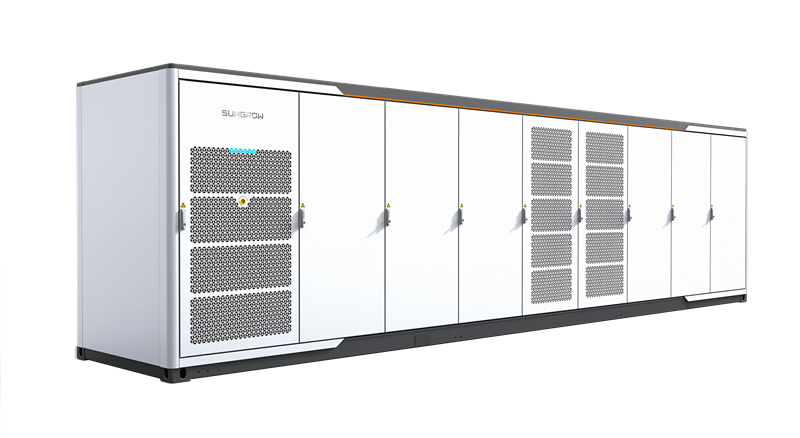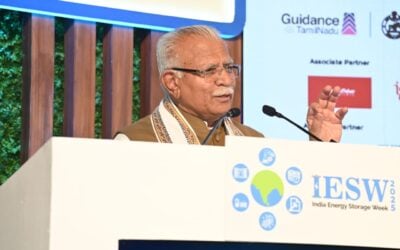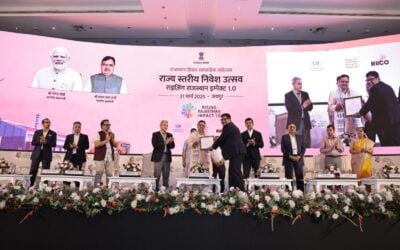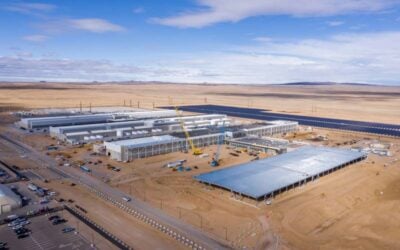
The energy storage division of solar PV inverter manufacturer Sungrow will supply battery storage equipment to Tata Power Solar for a project in Ladakh, India.
The battery energy storage system (BESS) will be “up to 60.56MWh” capacity and will be built at Phyang, a village in Ladakh’s Lei district close to the Pakistan and Chinese borders in the north of India.
Enjoy 12 months of exclusive analysis
- Regular insight and analysis of the industry’s biggest developments
- In-depth interviews with the industry’s leading figures
- Annual digital subscription to the PV Tech Power journal
- Discounts on Solar Media’s portfolio of events, in-person and virtual
Tata Power Solar’s engineering, procurement and construction (EPC) business was awarded the project through a tender hosted by the state-run Solar Energy Corporation of India (SECI).
It is thought to include a 20MW solar PV plant, which will be effectively made into a 50MWac energy resource for the region with the integration of the BESS.
At the time the award was made in late 2021, it was one of the largest such projects tendered for by SECI. However it will be surpassed by another which has since been awarded to Tata Power Solar, a 100MW solar PV project with 40MW/120MWh of battery storage in the central Indian state of Chhattisgarh.
SECI continues to tender for projects around the country. These to date have been for solar-plus-storage contracts, but in April the corporation launched a pilot tender for 500MW/1,000MWh of standalone BESS.
That tender has been described as a first of its kind for India, with BESS expected to be installed at two sites and connected directly to the country’s inter-state transmission system (ISTS) and expected to be followed by further tenders for a total of 4,000MWh capacity.
Tata Power Solar’s parent company Tata Power told Energy-Storage.news in December last year that there is “promising potential” for the energy storage industry in India, given the country’s strong ambitions for deploying renewable energy. The Union Government wants to install 500GW of solar and wind by 2030.
Sungrow said the Ladakh project will help support the local grid’s management of peak power. The company’s power conversion system (PCS) technology and its liquid-cooled BESS unit for utility-scale applications, ST2752UX.
The BESS can be AC-coupled or DC-coupled depending on the required configuration, has a maximum capacity per unit of 2,752kWh – hence the name – and was officially launched to the global market in March.
Energy-Storage.news reported a couple of months ago that the product will be used for a 16MW/64MWh project in Israel, together with Sungrow’s SC5000-UDMV PCS, for infrastructure solutions company Afcon’s project to increase operational efficiency at a 912MW gas plant. Sungrow also won a 430MWh supply contract with Israeli independent power producer Enlight for a two-phase project in the country.
In an interview earlier this year, Sungrow’s manager for the UK and Ireland said liquid cooling systems of the type used in ST2752UX were growing in popularity. Liquid cooling could come to dominate the market for new installations over HVAC-only cooling during 2022, Andy Lycett said.
On 22 June 2022, Energy-Storage.news and Clean Horizon will host a webinar explaining and analysing the current and future business models for energy storage in India, with guest speakers including Dr Rahul Walawalkar of the India Energy Storage Alliance (IESA) and Bharath Reddy from the Solar Energy Corporation of India (SECI). Sign up to attend, free of charge, here.






